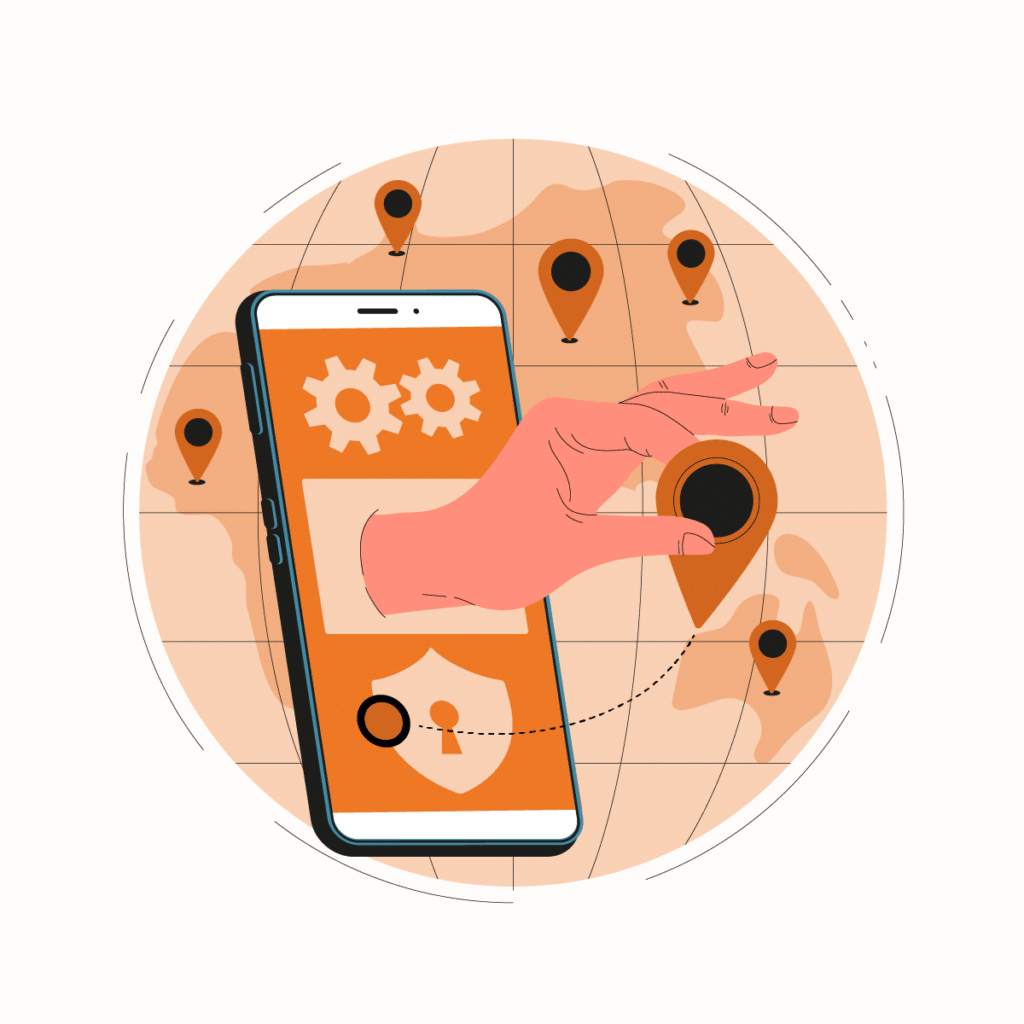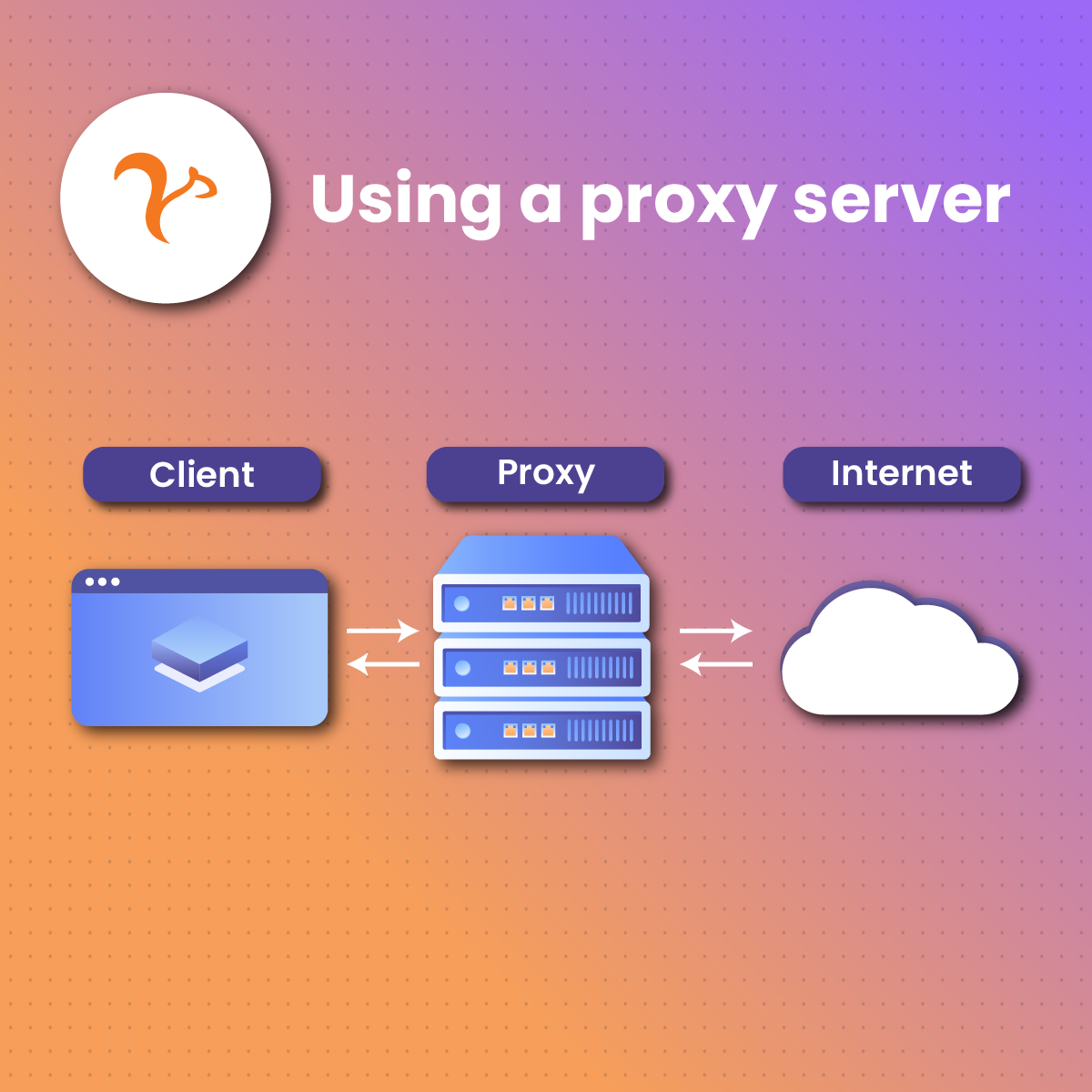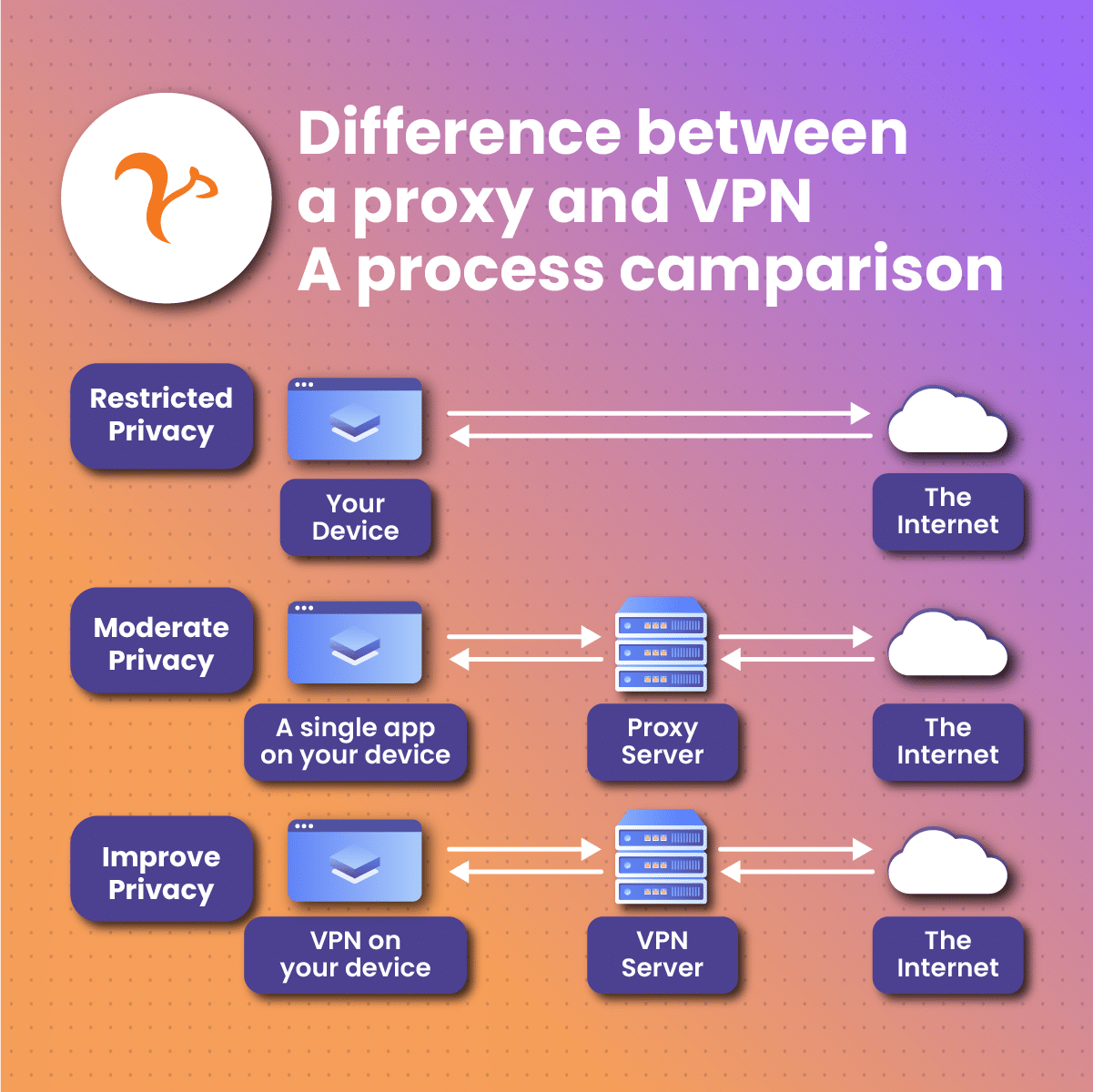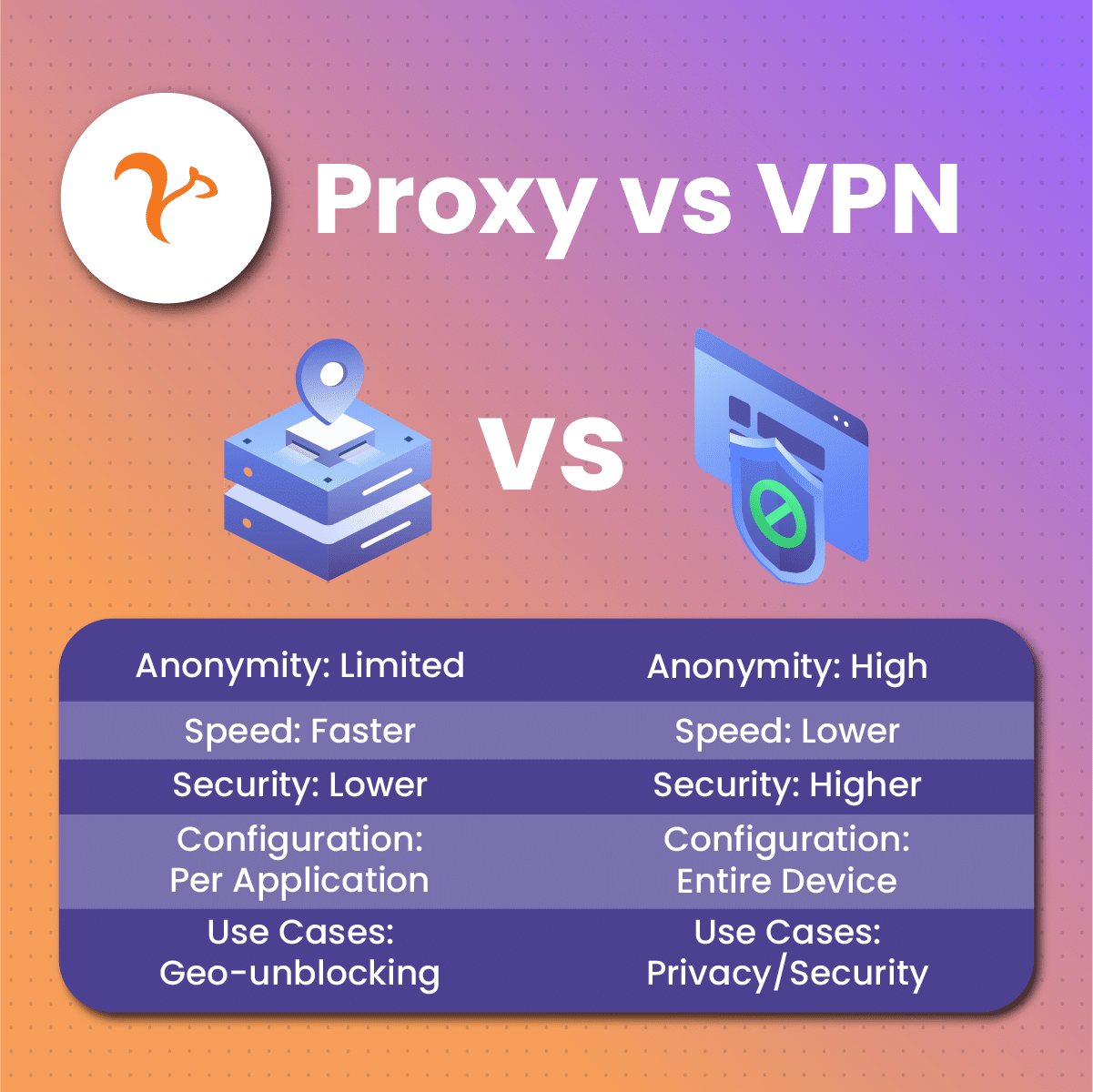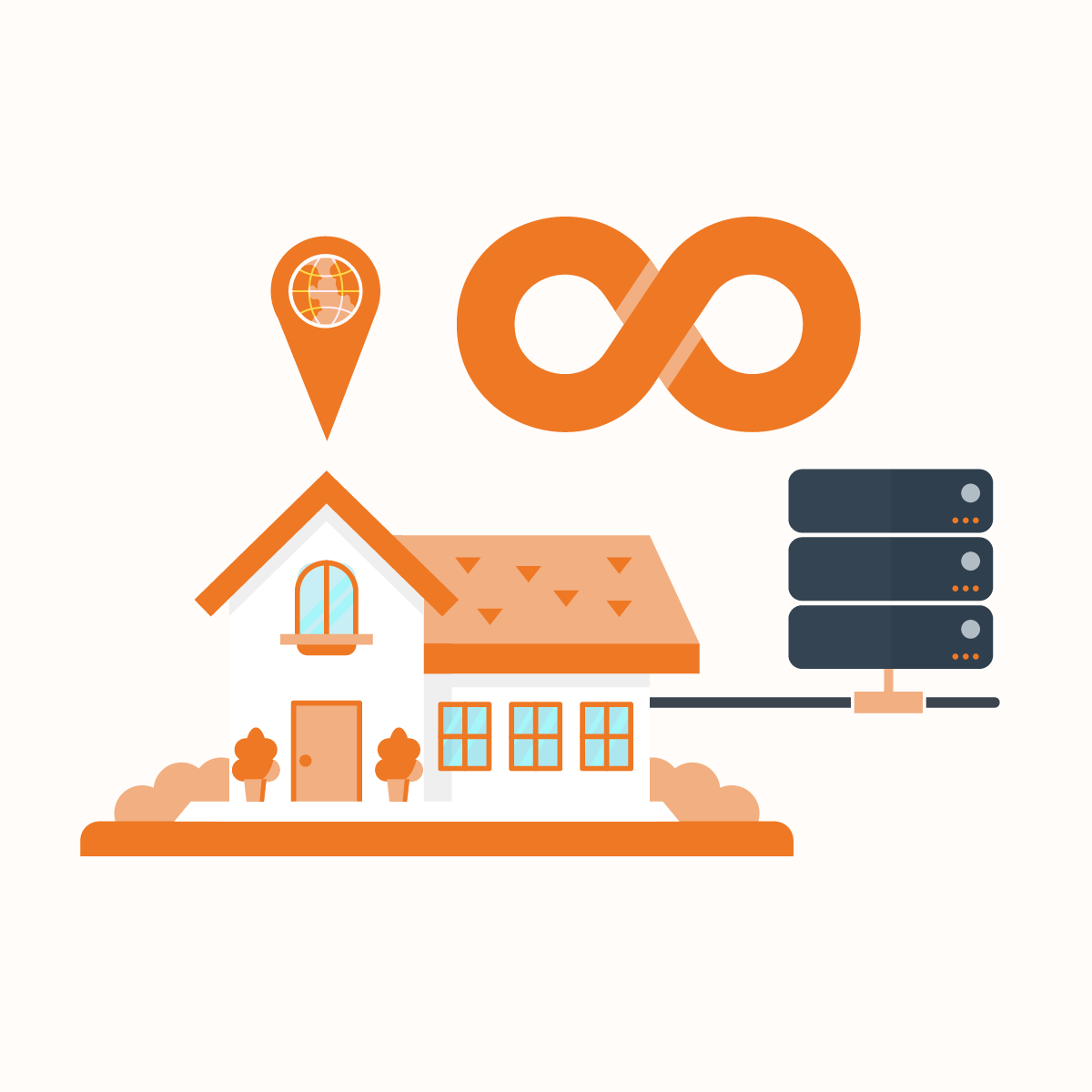Proxy VS VPN: Differences, Benefits, and What One to Choose
Online privacy is more valuable than ever before. When so much of our lives is handled digitally, it leaves us open to attack from invisible enemies. Cybercriminals are pretty smart- and are very good at what they do- but so are the people designing the tools to stop them.
Proxies and VPNs are two security software systems built for better privacy and a more enjoyable online experience. Many people mistakenly believe they are one and the same, but they are actually quite different in some ways.
If you have been looking for ways to upgrade your digital privacy, then the chances are you come across both of these tools. The question now is what one to pick.
In this guide, we explain what proxies and VPNs are, how they work, and what they do. We also provide a side-by-side comparison of the two and their benefits to help you decide which one is the best choice for you.
Proxy servers vs. VPNs- who will win?
What Is a Proxy?
Let’s start with a bit of background on proxies. Proxy servers are essentially middlemen between your device and the big bad world of the World Wide Web.
Whenever you visit a website, its servers send and receive data from the device you are using- opening up channels from which your data can be accessed. If you are using a proxy server, then it acts as a barrier- receiving the information from the website and sending it to you.
That means you essentially have anonymous online browsing because your IP address is hidden. The proxy stores all your internet traffic rather than letting it slip through to your device or computer.
Benefits of Using a Proxy Server
- Because a proxy server has its own IP address, nobody can see where the activity is coming from (a.k.a, you).
- That also means you can get around geo-blockers to access content that would otherwise be restricted in your current area.
- Proxies work like firewalls that filter cyber threats and keep them from accessing your device.
- There are 10 different types of proxy servers designed for specific tasks. That means you can tailor your software to meet your needs- be it client data transfers in businesses, sharing private data within a small circle, or keeping your website safe from hackers.
- Proxy servers have great cache systems that make access to websites and data more convenient, manageable, and secure.
- Internet connectivity and data processing speeds are usually high when using a good-quality proxy.
Downsides of Using a Proxy Server
- Some proxy service providers can access your information that is stored on the server internally.
- Despite using encrypted networks, there are techniques that can be used to get around the systems many proxy networks use.
- Because proxy servers can unblock all restricted websites, you may end up on sites that are better left blocked.
- It can be confusing knowing which of the different proxy servers to use.
What Is a VPN?
VPN stands for Virtual Private Network. It is essentially exactly what it sounds like- a private internet network managed through virtual public infrastructures. In other words, a VPN uses the basis of public networks to establish secure, reliable, and private connections for its subscribers.
Think of it like a public Wi-Fi network you connect to from anywhere that servers reach. It is the same idea, except those connected to the VPN have total privacy and security and can generally expect more reliable connections.
In many ways, VPNs are very like proxy servers. They also hide your IP address and protect your devices from hackers and data leaks- and they can be used to access restricted content.
Benefits of Using a VPN
- All traffic is rerouted no matter where it comes from, so the device has complete protection.
- Your online privacy is absolute, with a fully shielded IP and a randomly assigned replacement.
- Nobody can track your data or online activity- including governments, ISPs, and hackers.
- The encryption technology used by VPNs is some of the best- especially if you choose a reputable provider.
- There are many VPN companies to choose from with varying priorities, logging policies, and prices.
- Many VPNs come with additional security measures to further enhance online protection for users.
- Most VPNs are excellent for working around geo-blockers- so you can stream content from anywhere.
Downsides of Using a VPN
- Some of the best VPNs can be quite expensive.
- Network speeds are generally reduced when using a VPN- but it varies depending on your provider.
- There is some research that suggests VPNs take up memory space in your system and use its processing power to operate.
Similarities Between Proxy and VPN
As you can probably tell by now, there is a lot of overlap between these systems. VPNs and proxy servers are used for similar reasons and provide similar benefits. Here is a summary of what proxy servers and VPNs have in common.
- They both hide your IP address for a more private web browsing experience.
- VPNs and proxies both filter data requests and information coming from the websites you access.
- Watching geo-restricted content such as regional Netflix series, sports channels, and Disney + is possible with either a proxy server or a VPN.
- Both can be used to protect multiple devices (depending on the setup you choose).
- Proxies and VPNs are both highly beneficial software solutions for enhanced privacy and data protection.
Differences Between Proxy and VPN
Of course, we wouldn’t be having this discussion if there weren’t any differences. Despite being very close in design and purpose, proxies and VPNs are not quite the same. Some of the differences can feel like splitting hairs, but when it comes to your online safety, the devil is in the details.
Here is a quick look at what makes proxy servers and VPNs different from one another.
- Proxies are only designed to manage data between internet users and the websites they visit. A VPN encrypts everything for the entire device.
- A proxy server hides your IP address when you make a search but not when your device is idle. VPNs change the device’s IP address whenever you are connected to it.
- VPNs can often noticeably slow down your connection speeds, but most proxy servers do not.
- While proxies hide your IP address, VPNs make it look like the traffic is coming from somewhere else.
A Quick Side-by-Side Comparison
Now that we have discussed the similarities and differences- let’s compare proxy servers and VPNs to the things that matter most. This should help clarify which is the best choice for you!
Security Measures
When it comes to security, VPNs win- as long as you use a high-quality provider. Proxies are great for protecting your device when you visit websites, but they don’t encrypt your data on a system level.
On the other hand, VPNs use multiple levels of security and encryption to make your internet activities completely anonymous. When you are connected to a VPN, your device and identity are essentially hidden- whether or not you are actively using it.
Wherever you go (at home or overseas), you can use your VPN to shield your data and block any unwanted prying eyes.
User Privacy
Again, VPNs take the win on this one. The anonymity provided by a VPN is far superior to that of a proxy server.
Connection Speed
Because both of these systems need to process your data when you are using the internet, they can both be guilty of slowing your system down a little bit. That said, many proxies have excellent cache systems that offset the effects and make the difference unnoticeable.
Even the best VPNs can impact your connection speeds a little, and the cheaper ones can significantly slow things down.
Overall, if connection speed is what matters most over privacy and security, then a proxy server may be the better choice.
Content Accessibility
This is a close call- almost impossible to split. Proxies and VPNs are both great for getting around geo-blockers to let you access whatever content you want, no matter where you are.
Netflix, Disney +, HULU, and BBC iPlayer are some of the leading examples of global streamline services that are either unavailable in some locations or offer different content depending on where you are in the world. With a proxy or VPN, you can connect to a server that makes your device appear as it if is somewhere else. Doing so lets you access content the same way you could if you were actually in that location.
They also both work very well for sports channels. Missing out on games that are not streamed in your city is the bane of many fans’ lives, but that is a thing of the past when you use one of these tools.
It is hard to pick a winner, so let’s just say that either way, you are fine. The only difference would perhaps be the streaming and downloading speeds. VPNs can be slower than proxies, so you could determine that a proxy server is the better option for international content streaming. However, it depends on your provider and location.
Cost
To get the best from either of these services, it is best to go with a paid provider. Free proxies and VPNs are out there, but they tend to be slower and less secure.
Comparing the two like-for-like, you can generally find a more affordable proxy than a VPN if you are shopping top of the range.
Proxy VS VPN: What One Comes Out on Top?
There are pros and cons to both of these options, so the best choice really depends on your priorities.
As far as security, privacy, and reliable data protection are concerned, a VPN is the clear winner. If you travel a lot or use a business laptop when working remotely, it is advisable to go with a VPN for maximum device protection. The best VPNs have servers all over the world, so you can count on unwavering security almost anywhere you go.
Another reason why VPNs win on the privacy side of this is the level of anonymity they provide. Your identity is completely hidden and changes when using this type of service, while proxy servers only hide your IP address when you visit a website.
If, on the other hand, you value connection speed above all else, then using a VPN may not be the right choice for you. Proxies do a good enough job of protecting your data while you browse the web, and they do it without compromising your connectivity all that much.
Example of When a Proxy Is Best
You use your personal laptop primarily for streaming content at home. Most of the time, it is turned off, and you don’t use it to store any work files. A proxy is a good idea because it provides enough protection for casual online browsing and is unlikely to slow your connection down all that much. It easily bypasses geo-blockers to let you watch sports and other content from anywhere.
Example of When a VPN Is Best
You travel for work and have many business communications through your phone and laptop- you also use a tablet for meetings and some work files. A VPN can cover all your devices and change your IP address no matter where you go. Sometimes you travel overseas for work and need a reliable and secure connection. Your VPN can provide this along with peace of mind and access to blocked content. It is the most robust choice for security and access on a higher level.
Summary
In short, proxies and VPNs do similar things, but a VPN has more capabilities and is generally the better choice. If you just want to cover your back and get around geo blockers when you are actively using your device, then using a proxy is probably fine. They cost a little less comparatively and are sufficient for most purposes.
That said, VPNs take extra steps to protect subscribers. There is no better way to keep yourself, your device, and everything on it safe from cybercrime than a high-quality VPN subscription.
Although the risk of cybercrime is never 100% eliminated, a proxy or VPN can reduce the risks significantly and provide you with a more comfortable, private online browsing experience.
Now that you know the difference between VPNs and proxy servers and the pros and cons of each, which one sounds like the right choice for your online experience?
Frequently Asked Questions
Here are a few of the common questions asked about proxies and VPNs to give you a little further information about what to expect.
Do I need to use a proxy server if I am already using a VPN?
A VPN already does all the things you would need a proxy for, so there is no point in adding one to the mix. If you are using a proxy and are considering adding a VPN, it may be worth switching over entirely to avoid duplication and more data processing than necessary.
Are VPNs and proxy servers legal?
In most parts of the world, using a VPN or proxy server is completely legal. That said, if you use your proxy or VPN to do anything illegal, it is still illegal. Some countries that have particularly strict internet censorship rules do not support the use of these tools, and having one on your device may be seen as a breach of the law.
It is always best to look into specific laws if you are traveling somewhere and are not sure about the regulations. Remember, using a VPN or proxy to access illegal sites or download restricted or pirated content is not legal anywhere.
Can I use a proxy and a VPN at the same time?
Although you could technically use a proxy and a VPN at the same time, there is really no need. Doing so could actually have a negative impact on your internet speed, connectivity, and general ability to use your device. Save yourself time, money, and hassle, and stick to one or the other!
Will my internet connection be slower if I use a proxy or VPN?
It is possible to experience a dip in internet quality when using either a VPN or a proxy. Both tools need to process all your data through their systems, so it is not unusual for the connection to be slower.
How much they impact your internet connection and speed depends on the quality of the VPN or proxy you use. Some of the best VPNs, for example, are designed to provide high-speed connections and have very little impact on your internet user experience overall.
Is it possible to use proxy servers and VPNs for free?
Yes, you can find free VPNs and free proxy servers pretty easily but the cost generally reflects the quality. Free proxies and VPNs are usually slow, have limited data, and offer little to no security or privacy whatsoever. It is not a good idea to download a free version of either of these tools without checking the terms and conditions- especially the privacy policy.
